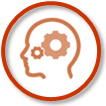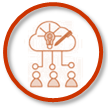-
-
PUPChat is a feature within the PUP eLMS that enables real-time communication between participants in a course. It allows users, such as instructors, and administrators, to engage in text-based conversations within the platform.
Here are some key features and aspects of PUPChat:
-
Real-time communication: PUPChat provides a synchronous communication tool, meaning users can engage in conversations instantly, similar to a chat room or instant messaging platform.
-
Course-based: PUPChat rooms are typically organized within specific courses. This allows for focused discussions related to course content, assignments, or other topics relevant to the learning environment.
-
Participant interaction: Users can interact with each other in the chat room by sending text messages. Depending on the configuration set by the instructor or administrator, participants may have the ability to send messages to everyone in the chat, specific groups, or individual users.
-
Facilitates collaboration: PUPChat is often used to facilitate collaboration among students working on group projects, to ask questions and seek clarification from the instructor, or to engage in discussions related to course material.
-
Customizable settings: Instructors can customize various settings for PUPChat, such as enabling or disabling the feature, setting chat room permissions, defining chat room topics, and specifying time restrictions for when the chat is available.
Overall, PUPChat serves as a valuable tool for fostering communication and collaboration within the PUP eLMS environment, enhancing the overall learning experience for participants.
-
-
Available courses
This course is an activity centered subject and will employ collaborative learning & consultative problem solving with the aim to execute a business plan while giving students the opportunities to apply their knowledge in product development & innovation, production, material logistics, marketing, financial management, resources management, policy making, and business organization through an entrepreneurial/business venture at its initial incubation stage. The course has a lecture and laboratory part. The lecture part is both a lecture and consultation time where students can seek expert opinion regarding specific aspect of the business plan and other topics useful for the business venture deemed necessary during business consultation. The laboratory is the execution of the business plan (Phase 1) that has to be done prior to full scale commercialization.
The Bachelor of Science in Information Technology (BSIT) program is a four-year degree program which focuses on the study of computer utilization and computer software to plan, install, customize, operate, manage, administer and maintain information technology infrastructure. It likewise deals with the design and development of computer-based information systems for real-world business solutions.
The program prepares students to become IT professionals with primary competencies in the areas of systems analysis and design, applications development, database administration, network administration, and systems implementation and maintenance.
The program also requires a Capstone project. It should be in the form of an IT applications development as a business solution for an industry need.
The Contemporary World focuses on a variety of modern worldwide issues together with their historical context, present situation, and potential long-term effects. One of its primary themes is the interconnectedness of the world. It looks at important world challenges and technological advancements that have shaped our modern world. This course emphasizes the political, economic, social, and cultural changes for the learners in providing a thorough understanding of global dynamics. Through the application of multidisciplinary methodologies and critical reasoning, learners will explore the global issues and important subjects that affect the modern world.
Advancements in technology, cultural interchange, and economic union are the results of globalization; stimulated by the changes in transportation, communication, and technology. It facilitates a world trade regime where the global economy is connected through trade, direct investment, and international firms with the assistance of international economic institutions. Cultural diffusion spreads ideas and lifestyles while technological innovations create links between individuals fostering collaborations. The current world has complex relationships among such aspects as economics culture technology labor environment politics that shape its destiny hence need for careful analysis and management. Consequently, united efforts of different countries, international cooperation, sustainable development strategies, and fair global governance can resolve global issues.
Keywords: interconnectedness, technological advancements, global dynamics, collaborations
The course is a study of the different phases of information systems development. Discussions will concentrate on the initiation, analysis, and design of a system. This course strikes a balance between the theoretical and applied aspects of systems analysis, presenting state-of-the-art systems procedures, methodology, and software. Skills that will be acquired are understanding the current system, determining the problems and their root causes, and providing solutions to these problems. These skills are applied by allowing the students to experience analyzing and designing a ‘live’ system for an outside client before they do it in the real-world.
FOCUS: This course focuses on the theories, concepts, and issues on child and adolescent learner development. The course also covers the various stages of human development, from prenatal, birth, infancy up to the adolescence stage and the key dimensions of the development of children and adolescents: the physical, cognitive, and socio-emotional development. The course is also focused on the basic concepts and issues on human development and selected developmental theories and principles namely: Freud’s psychoanalytic theory, Piaget’s stages of cognitive development, Erickson’s psychosocial theory of development, Kohlberg’s stages of moral development, Vygotsky’s socio-cultural theory, and Bronfenbrenner’s Ecological theory.
RATIONALE: The content of the course is intended to provide the pre-service teachers a clear and broad understanding of the learners’ developmental processes for them to deal effectively to the unique characteristics of each learner. This understanding would guide the pre-service teachers bring out the best outcome in the teaching and learning process considering the application of the different learning principles.
OUTPUT: An electronic portfolio that shows all of the activities, quizzes, examinations and other accomplishments in the subject and their critical application is expected toward the end of the semester.
MODALITY: The course is delivered through a combination of strategically designed face-to-face and online (synchronous and asynchronous) sessions
Purposive Communication is about writing, speaking, and presenting to different audience and for various purposes. It is a three unit course that develops students’ communicative competence and
their cultural and intercultural awareness through multimodal tasks that provide them opportunities for communicating effectively and appropriately to a multicultural audience in a local or global
context. It equips students with tools for critical evaluation of a variety of texts and focuses on the power of language and the impact of images to emphasize the importance of conveying messages
responsibly. The knowledge skills, and insights that students gain from this course may be used in their other academic endeavors, their chosen disciplines and their future careers as
they compose and produce relevant oral, written audio-visual and/or web-based output for various purposes.
This course focuses on the principles, development and utilization of conventional assessment tools to improve the teaching learning process. It emphasizes the use of assessment of, as, and for learning in measuring knowledge, comprehension and other thinking skills in the cognitive, psychomotor or affective domains. It takes pre-service teachers through the standard steps in test construction and development, the application of grading system, and the provision of timely accurate, and constructive feedback to improve learner performance. Trends and issues related to assessment are also addressed.
Pagsanay ng paggamit ng estruktura at gamit ng Wikang Filipino sa pagtuturo sa elementarya. Sumasaklaw sa deskriptibong pag-aaral ng wikang Filipino sa lebel ng polohiya, morpolohiya, semantikas at sintaks., sapagkat pangunahing kahingian sa anumang pagtuturo ng wika ang pag-aaral at pagsusuri sa estrukturang nakapaloob dito. Pangunahing kahingian ang pagsulat ng banghay-aralin at paglikha ng kagamitang panturong nakaugat sa local na kultura upang maipamalas ang kahusayan sa pagtuturo ng Filipino gamit ang wikang Filipino at mother tongue at akmang dulog sa pagtuturo at pagkatuto ng/sa wikang Filipino ayon sa kahingian ng K-12 kurikulum.
This course is designed for the development of the students as responsible citizens with a strong sense of nationalism and a profound spirit of volunteerism through programs which will empower them to participate actively in the betterment of life of the members of the community and prepare them to render selfless service to the nation. The NSTP Law, Good Citizenship Values, Disaster Risk Reduction, Environment Protection, Drug Addiction, Self-Awareness, and Leadership Training are integral parts of this course.
This course aims to familiarize students about the formation, capacities, and nature of the Philippine government, as well as civil society organizations and social movements, as political actors in the Philippine setting along with exercises of territoriality and citizenship as expressions of multiple levels of power.
This course focuses on the principles, development and utilization of conventional assessment tools to improve the teaching learning process. It emphasizes the use of assessment of, as, and for learning in measuring knowledge, comprehension and other thinking skills in the cognitive, psychomotor or affective domains. It takes pre-service teachers through the standard steps in test construction and development, the application of grading system, and the provision of timely accurate, and constructive feedback to improve learner performance. Trends and issues related to assessment are also addressed.
-
Field Study 2 can be anchored on the following Professional Education Subjects: Principles of Teaching 1 Principles of Teaching 2 Objectives: Enrich knowledge on teaching methods and strategies, appropriate instructional materials and assessment tools used by teachers.
|
The course analyzes Philippine history from multiple perspectives through the lens of selected primary sources coming from various disciplines and of different genres. Students are given opportunities to analyze the authors’ background and main arguments, compare different points of view, identify biases, and examine the evidence presented in the document. The discussions will tackle traditional topics in history and other interdisciplinary themes that will deepen and broaden their understanding of Philippine political, economic, cultural, social, scientific, and religious history. Priority is given to primary materials that could help students develop their analytical and communicative skills. The end goal is to develop the historical and critical consciousness of the students so that they will become versatile, articulate, broad-minded, morally upright, and responsible citizens. This course includes mandatory topics on the Philippine Constitution, agrarian reform, and taxation. |
This course equips prospective teachers with pedagogical content knowledge for the teaching of basic contents in Mathematics in the primary level. Understanding of key concepts and skills of whole numbers up to 10,000, fractions, measurement, simple geometric figures, pre-algebra concepts and data representations and strategies include problem solving, critical thinking, differentiated instruction, inquiry based learning with the use of manipulatives based on cultural content will be emphasized.
This course provides a broad understanding and knowledge of important business analytic topics and how they can be used to support decision-making in all business areas such as government, education, and agriculture. Emphasis will be placed on the technical procedures that are used to describe, predict, and prescribe data into information for decision-making. Students will learn how data exploration results in a sequence of descriptive, predictive, and prescriptive processes to result in unique and new information on which decisions can be made.
This course is designed for BS Office Administration students, majoring in Medical Office Administration. It aims to equip students with the skills to design and manage business websites, with a specific focus on medical office contexts. The course covers web design principles, coding languages (HTML, CSS, JavaScript), and the application of web technologies to create responsive, user-friendly, and secure websites tailored for business and medical purposes. Students will have hands-on laboratory sessions to practice and develop websites that cater to administrative functions in the medical field.
The course deals with the interactions between science and technology and the social, cultural, political, and economic contexts that shape and are shaped by them. This interdisciplinary course engages students to confront the realities brought about by science and technology in society. Such realities pervade the personal, the public, and the global aspects of our living and are integral to human development. Scientific knowledge and technological development happen in the context of society with all its socio-political, cultural, economic, and philosophical underpinnings at play. This course seeks to instill reflective knowledge in the students that they are able to live the good life and display ethical decision making in face of scientific and technological advancement.
This course examines principles, factors, and contexts of language acquisition and learning based on theories and research findings.
Chemistry for Engineers is application of chemistry in relation to the generation of energy.
This course is designed for undergraduate engineering students with an emphasis on problem-solving related to societal issues that engineers and scientists are called upon to solve. It introduces different methods of data collection and the suitability of using a particular method for a given situation. The relationships of probability to statistics is also discussed, providing students with the tools they need to understand how “chance” plays a role in statistical analysis. Probability distributions of random variables and their uses are also considered, along with a discussion of linear functions of random variables within the context of their application to data analysis and inference. The course also includes estimation techniques for unknown parameters; and hypothesis testing used in making inferences from sample to population; inference for regression parameters and build models for estimating means and predicting future values of key variables under study. Finally, statistically based experimental design techniques and analysis of outcomes of experiments are discussed with the aid of statistical software.
Data structure is an essential area of study for computer scientists and for anyone who will ever undertake any serious programming task. This course deals with the fundamentals of organizing and manipulating data efficiently using clean conceptual models. In particular, the emphasis is on the organization of information, the implementation of common data structures and techniques of data abstraction. Implementations in this course are carried out in any programming languages, but the principles are more generally applicable to most modern programming environments.
Data Structures are containers that contain objects of data types. There are several common data structures, and each has its own behavior and applications. Common data structures are: arrays of one or more dimensions, stacks, linked lists (singly and doubly linked), queues, trees (balanced, binary, and so on), graph and hashing. Understanding data structures helps the student understand how they behave, and when to use any of them.
This course is designed to equip BSED MT students with necessary and relevant skills and competencies to teach related Mathematics subject in the secondary level. The course provides a basic understanding of vector spaces, including the study of matrices, their properties and matrix operations. It also covers application of matrices in systems of linear equations and linear transformations.
This course is designed to provide students with an overview of computing fundamentals. The materials covered in this course include concepts in computers such as elements of the computer system, number system operation and conversion, data representation, digital logic system, levels of programming, computer networks, computer applications, current trends and issues. The topics prepare the students for their next subjects in the curriculum and broadens their perspective on how information technology affects every aspect of human life. Program compilation are expected toward the end of the semester. The course is delivered through a combination of strategically designed face-to-face and online sessions.














